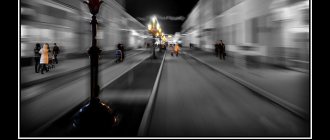Friedrich Wilhelm Marpurg on Bach:
"AND. S. Bach arrived in Dresden and, with the consent of the king, without Marchant knowing about it, was admitted as a listener to the next concert at court. When, among others, Marchand performed a French song at this concert and was applauded for a very long time for his pure and fiery performance and for his skillful variations, then Bach, who was standing next to him, was invited to try the clavier. He accepted the invitation, preluded briefly but masterfully and, before anyone could have expected it, repeated the song played by Marchand and varied it with new art in a way never before heard a dozen times. Marchand, who had hitherto been inferior to any organist, had, without a doubt, to recognize the superiority of his current opponent. For when Bach allowed himself to invite him to a friendly competition on the organ and at the end presented him with a theme sketched in pencil on a piece of paper to process it without preparation, asking him for a theme for himself, then Mr. Marchand was not on the chosen battlefield. showed up and considered it more useful to leave Dresden by extra mail.”
Text of the book “Bach in Quotes and Aphorisms”
Bach in quotes and aphorisms
In every music there is Bach,
in each of us there is God.
Joseph Brodsky
* * *
UDC 78
BBK 85.313(0)ya48
B30
Compiled by Tatyana Popova
Executive editor of the series Alexey Lysakov
Series design by Alexander Vasin
B30 Bach in quotes and aphorisms. – M.: Publishing House “Classics-XXI”, 2021. – (Series “About the Greats - Briefly”).
ISBN 978-5-89817-413-2 (separate book)
ISBN 978-5-89817-400-2
Before you is not a finished portrait of the composer, but a palette of colors for him, sketched by his contemporaries and descendants, fans and critics, venerable musicologists and advanced Internet users.
All rights reserved. No part of this book may be reproduced in any form without the written permission of the copyright holders.
© Publishing house "Classics-XXI", 2008
No. 1 Alexander Privalov
Ask any Bach admirer how he imagines the personality of the author of “Das Wohltemperierte Klavier”; he will either admit, not without surprise, that there is no way, or he will begin to say something about wisdom, infinity, timelessness - and soon you both will understand that he is trying to describe Hosts.
No. 2 Illarion Alfeev
Bach is a phenomenon of pan-Christian scale. His music transcends denominational boundaries, for it belongs to the universe and every citizen of it. Bach can be called an Orthodox composer in the sense that throughout his life he learned to glorify God correctly: he decorated his scores with the inscriptions “Glory to God alone,” “Jesus, help,” and these inscriptions were for him not verbal formulas, but a confession faith.
No. 3 Hermann Hesse
To that Bach, whose biography we know and whose image we have formed for ourselves from his music, we involuntarily attach his posthumous fate: in our imagination, he seemed to know during his lifetime and silently smiled at the fact that immediately after his death his creations would be forgotten, his manuscripts will perish as waste paper, and after its revival his music will be the object of barbaric distortions.
No. 4 Sergei Morozov
Bach's musical family is called plebeian. For a good century, the name Bach served as a common noun: Bach certainly meant musician.
No. 5 Janos Hammerschlag
Sebastian Bach himself compiled the genealogy of his family. He considers the “Hungarian baker” Vitus (Weit) Bach to be the founder. Consequently, Bach still believed that his family originally came from Hungary (presumably from Bratislava).
No. 6 Leonid Lyubovsky
I peer at his portrait. Simple, rough features of a completely ordinary face: a high forehead, a large, fleshy nose, softly defined lips, a heavy round chin; from under the knitted eyebrows, forming stubborn transverse folds, a sharp, attentive gaze of slightly narrowed eyes. A respectable, sedate burgher. The wig, in keeping with the fashion of that time, gives it solidity and solemnity. Who hasn't made fun of this wig! Who hasn't beaten him! Even your own children. It’s interesting that it never occurred to anyone to make fun of Handel’s same wig.
No. 7 Karl Friedrich Zelter
We need to get the French powder off his wig.
No. 8 Vladimir Odoevsky
You ask for a portrait of Bach, and instead of Bach they show you some grumpy old man with a mocking face, with a large powdered wig - with the grandeur of a department director.
No. 9 Jörg Hansen
We know that he was a strong man - he danced, tapped his feet when he played and sang. He was a very energetic person. For most, Bach is an old man in a wig, this is a stylized image, we do not have a realistic portrait of him.
No. 10 Johann Friedrich Reichardt
I saw a portrait of Bach, painted from life, where the great literate and contrapuntist is depicted as thick-cheeked, broad-shouldered, with a wrinkled forehead, in strict civilian dress, with notes in his hands: he seems to be inviting us to decipher the ingenious six-voice triple canon.
No. 11 Alexander Maikapar (from an imaginary conversation between Bach and E. G. Hausman)
- Mr. Houseman, how long will it take to paint my portrait?
– I’ll need you for three or four sessions...
- Hmm, yes, I rashly agreed. I have absolutely no time. How much Mitzler demanded of me for joining his Society - both the canonical variations and the oil portrait... By the way, I became, just imagine, the fourteenth member of the Society.
- Why is this so important?..
- No, it doesn’t matter, 14 is just my number.
- That is?
- Very simple. Number our alphabet: A, B, C, D... – 1, 2, 3, 4, etc., it turns out that BACH is 2 + 1 + 3 + 8 = 14. What, you didn’t know? Listen, I came up with a brilliant idea! So that everyone understands that I am a musician, let me pick up a sheet of music. I'll write something on it... Something small, but very witty. ABOUT! I will write the theme... of the triple canon... ( Writes
.) Here is a sheet of paper with three lines. Everyone who looks at this portrait must mentally add another voice to each line. So... it should be a six-voice piece. Just be sure to draw the sheet so that it is not me who reads it, but the viewer.
No. 12 Radio Russia website
Contemporaries testify that as a person Bach was simple and strong-headed. So simple that, in fact, you can’t really tell much about his life. Everything that he was remains in his music. But he was a sober professional who wrote music as part of his work.
No. 13 Steven Isserlis
Bach undoubtedly loved to drink and eat. If his friends wanted to appease him, they sent him a good piece of meat or a good bottle of brandy or wine. In his youth he once received part of his year's salary in beer! And when he locked himself in his room and composed music, he often took a bottle of brandy with him. And how did he even have the clarity of mind to compose? But that was probably enough.
No. 14 Carl Philipp Emanuel Bach
Many stories are told about Bach with all kinds of adventures. Perhaps some of them (about his youthful antics with brawls) are not among the fables. My father didn’t want to hear about all this...
No. 15 From the minutes of consistory meetings, 1705
One day Bach was walking home with his cousin. With a cry of “dog breed!” A senior high school student and bassoonist named Geiersbach attacked him, demanding to admit that Bach called him a squeaky bassoonist. And since he could not deny this, a fight broke out, which caused a lot of noise in the town and inflamed passions. Bach was even summoned to the consistory; he had to admit that he called Geiersbach a “pig bassoonist.”
No. 16 Steven Isserlis
Bach had to give lessons for several hours every day, rehearse with the choir and orchestra for weekly religious services and concerts, conduct, play the violin and viola, tune his keyboard instruments, test many organs (no one understood them better than him), invent musical instruments, if for the next composition he needed new timbres, and also write incredibly long and boring letters to his employers with all kinds of complaints, mainly about finances. How did he manage all this? Maybe he only slept for five minutes at night, and he had forty-eight hours in a day?!
No. 17 Radio Russia website
Bach arranged a four-week vacation and walked 200 miles to Lübeck to experience the music of the great organist Buxtehude. Bach returned, however, only 4 months later, full of new ideas, and tested his new organ technique on the parishioners, which greatly confused the unprepared audience “with his confusing variations and unnecessary embellishments that destroy the melody and confuse the worshippers.” The church council blamed him for “strange sounds,” but due to his youth, they forgave him, just as they forgave him for trips to the wine cellar during services, and for an unknown girl in the organ attic - but Bach had no intention of correcting himself. Conflict with management was inevitable.
No. 18 Anatoly Milka and Tatyana Shabalina
Twenty-year-old Sebastian, with amazing tenacity, paying little attention to obstacles, asserted his own line of behavior. This character trait will remain with him for the rest of his life. Oh, and Bach will suffer because of her!
No. 19 Entry in the file of J. S. Bach. Weimar, 1717
Concertmaster and court organist Bach was put under arrest in the premises of the Land Court for his obstinacy and for demanding his resignation, and then, along with the expression of disgrace, he was given his resignation and simultaneous release from arrest.
No. 20 Stephen Isserlis
Bach did not get along very well with the city authorities of Leipzig. Something was constantly irritating him. There were either compelling reasons related to music, or less compelling ones, certainly related to money. For example, in one letter he is angry because a certain resident arranged a wedding outside the city; according to Bach, he did this so as not to pay for wedding music! In another letter, Bach complains that the wind has been too favorable in the city all year and he earned too little money from the funeral. Hm...
No. 21 From the minutes of meetings of the Leipzig Municipality
Cantor Bach does not behave as he should, namely, without prior notice, he sent a group of his students to the provinces. Without asking for leave, he left on his own, which we should forbid him and for which he should be reprimanded.
No. 22 Albert Schweitzer
With his superiors he was insultingly proud, but in ordinary life he did not let anyone feel his superiority. His modesty was not hypocritical and contrived, like that which celebrities sometimes put on so that the world considers them great in this respect; no, it was genuine, healthy modesty, supported by a sense of his own dignity, which he did not lose even when he wrote to the kings.
No. 23 Philip Spitta
Friends and enemies bowed before the irresistible power of his unheard-of virtuoso playing.
No. 24 Sergey Bazunov
The French organist Marchand was especially famous. With his brilliant performance he managed to charm the entire beau monde
capital of Saxony. Everyone was talking about the new musician. One way or another, our venerable maestro, putting aside his serious cantatas for a while, suddenly decided to visit his friends in Dresden. On the appointed day and hour, the brilliant assembly, to which Bach was introduced, settled down to listen to their favorite. Marchand began to play a brilliant French aria, accompanying the melody with numerous difficult and brilliant variations. After that they asked, of course, to play Bach as well. He suddenly started playing the same aria. Everyone was amazed at the extraordinary accuracy with which the musician recited the piece he had just heard from memory. But, having completed the last of the variations, he moved on to variations of his own invention, much more elegant, difficult and brilliant.
It was agreed that both musicians would meet again for a general competition. When the appointed evening arrived, it was announced that M. Marchand had left the city in the morning of that day.
No. 25 Johann Adolf Scheibe
He judges by his fingers, which is why his works are extremely difficult to play; he wants singers and musicians to do with their throats and instruments what he was capable of with his clavier. This, however, is impossible...
No. 26 Johann Friedrich Agricola
Using only his legs, he could play pieces that other organists, quite skilled, could not play with all five fingers.
No. 27 Konstantin Bellerman
The organist's legs, like birds, darted from one pedal key to another, and heavy sounds, booming like thunder, were heard in the ears of the listeners.
No. 28 Janos Hammerschlag
Real legends were created about Bach's playing. He willingly went to play the organ in village churches, hiding his name on such occasions. One day, an organist, hearing him play, exclaimed with horror and amazement: “It can’t be anyone other than Bach, or it’s the devil himself!”
No. 29 Johann Friedrich Daube
With his most skillful accompaniment, Bach knew how to breathe life into a lifeless solo. Those who have not heard him have not heard very much.
No. 30 Johann Nikolaus Forkel
Bach often came to Dresden (the Saxon capital) specifically for opera performances. He took his eldest son on these trips. He turned to him with a joking question: “Well, Friedemann, would you like to take a ride with me to Dresden, listen to their cute songs there?”
No. 31 Sergey Morozov
Bach jokingly called the opera “songs.” Johann Sebastian did not shy away from Italian and French music, but he did not value imitation of foreign art for the sake of entertaining the court public, although the artistry of the musicians and singers evoked his sincere praise.
No. 32 Janos Hammerschlag
One day Bach was told that in the future, God forbid, he would not compose “theater music.”
No. 33 Heinrich Nikolaus Gerber
In the chapel of one noble gentleman, many high-ranking ministers and noble ladies gathered, who with great enthusiasm sang the first psalm of the Passion according to the prayer book. But when this theatrical music began, everyone was plunged into the greatest amazement, looked at each other and said: “What could this be?” One elderly noble widow said this: “God forbid us, my children! It’s like we’ve come to a comic opera!”
No. 34 Albert Schweitzer
Music for him is worship. Art was a religion for him. For him, any great art, including secular art, is in itself religious.
No. 35 Johann Heinrich Buttstätt on Bach's church music
They drag all sorts of song trash into church, and the more fun and danceable the music, the more successful it is, so sometimes all that’s missing is for the men to hug the women and start dancing between the chairs, as they sometimes dance between the tables and pews at weddings. .
No. 36 Willi Tokarev
Bach liked the coffee drink, and he was not a chauvinist - he was lucky with his wife Anna Magdalena. So he wrote The Coffee Cantata in defense of women's right to coffee.
No. 37 Albert Schweitzer on “Coffee Cantata”
Bach wrote music that was more likely to be attributed to Offenbach than to the old cantor of St. Thomas.
No. 38 Johann Adolf Scheibe
Bach's church works become more and more artificial, more and more forced; they do not have the strength, persuasiveness and prudent meaningfulness that exists in Telemann’s and Graun’s works.
No. 39 Janos Hammerschlag
One of the cheerful episodes of Bach's life is recreated by the final fugue of the Sonata for Clavier in D major. Bach designated the theme (not quite correctly from the point of view of the Italian language) as follows: “Thema all'Imitatio Gallina Cucca” (which should have meant: “Capriccio on the clucking of an ingenuous hen”). The shrill voice of a young hen, whose breath has been interrupted by animated clucking, is also heard in counterpoint.
No. 40 Willy Tokarev
And sometimes J. S. Bach liked to indulge in an original song. For his wedding with Anna Magdalena, he composed funny and even frivolous poems, then he came up with music for them and performed them himself. And everyone liked it.
No. 41 Robert Schumann
Bach was fully human. There was nothing half-hearted or unhealthy in him, everything was written for eternity.
No. 42 Janos Hammerschlag
The form of the wedding quadlibet was stereotypical. A playful greeting stanza addressed to the "virgin bride" was also a traditional custom at the time. Rough hints corresponded to the taste of the era, but it should be noted that they were not alien to the taste of our maestro. Even four years later, he included such verses in Anna Magdalena Bach's Notebook.
No. 43 Anton Rubinstein
His “Wohltemperierte Klavier” became the gospel for every serious artist striving for the highest ideal.
No. 44 Karl Friedrich Krämer
He could not tolerate anything half-hearted, lopsided, unclean, incomplete, imperfect. In short, he... hated unresolved dissonance more than anything in the world!
No. 45 Karl Friedrich Krämer
In the evening, when Bach went to bed, his three sons played for him, and to this music he went to bed. This really annoyed the boys. Philip Emanuel listened one evening and - as soon as he noticed that his father was snoring - he jumped from the harpsichord, right on an unauthorized chord, and ran away. The father woke up immediately. At first he thought that Emanuel would be back soon. But nothing like that. Then he gropes his way in the dark to the instrument, takes this ill-fated dissonant chord and... resolves it.
No. 46 Memoirs of eyewitnesses
Bach often found satisfaction in (very unusual) musical communication with beggars, who had a delightful way of begging - with lamentations replete with dissonances; at first he pretended that he wanted to give them something, but could not find anything on himself; Meanwhile, the flow of lamentations increased, and then he gave them just a little from time to time, which only slightly moderated their pleas; and in the end he suddenly gave them a lot, which entailed complete resolution (of the accumulated cacophonies) and a perfect, most satisfactory cadence.
No. 47 Emilius Rosenov
He taught to look at instrumental voices as individuals, and at a polyphonic instrumental composition as a conversation between these individuals.
No. 48 Johann Nikolaus Forkel
Everything about him is impeccable, perfect; a music connoisseur would not want to hear a single sound differently from how Bach used it.
No. 49 Karl Friedrich Abel
If Sebastian Bach and his son Emanuel had had the good fortune of composing for first-class performers and for the stage and public of great capitals such as Naples, Paris or London, they would have simplified their style to suit the needs of those who were to judge them. By composing in a more popular, more intelligible and attractive style, they would increase their fame and become the greatest musicians of our century.
No. 50 Evgeniy Nazaykinsky
Doesn’t Bach seem to us now, when we know the romantics, verists, and expressionists, much more restrained and balanced? Didn't he seem more passionate and emotional to his contemporaries? After all, I. A. Sheibe characterizes Bach’s music as “pompous,” “confused,” “vague,” “unclear.”
No. 51 Johann Adolf Scheibe
This great man might have become the object of the admiration of nations, if he had been more agreeable, if pomp and chaos had not deprived his works of naturalness, and if he had not marred their beauty with his excessive art.
No. 52 Johann Philipp Kirnberger
I readily admit that I still understand his tricks no more than a monkey understands chess. And, worst of all, the more I improve in art, the more clearly I realize its greatness, which will forever remain inimitable; and yet many things can be expressed more beautifully and with greater feeling.
No. 53 Harry Grodberg
I have served Mr. Bach for over 50 years and never cease to admire his genius. This is a riot of imagination and at the same time strict calculation, amazing knowledge of polyphonic canons and improvisational freedom. Bach's music, even the most dramatic, is directed towards light, goodness, it is in tune with man's striving for the ideal.
No. 54 Radio Russia website
As a composer, Bach was so revered that people went to extremes to obtain his work. One day he stopped by the neighboring town of Halle. But it must be said that the local pastor had long been asking him in vain for a cantata for his church - and, having obtained the composer, he simply locked him in a room at the best local hotel and generously supplied him with tobacco, food and alcohol until the cantata was finished.
No. 55 Filippo Finazzi
You have reason to praise Mr. Bach, and I would be a fool if I intended to dispute the merits of this great man. But we must admit that music does not serve his pleasure, and an amateur who does not understand music will never acquire a taste for such difficult harmony.
No. 56 Johann Adam Hiller
Of course, few people would think of delighting the ears of a languid beauty with a Bach fugue.
No. 57 Pablo Casals
This music is the best source of youth. She renews the soul.
No. 58 Heinrich Christoph Koch
But aren’t the works of Sebastian Bach for the world of current musical fashion the same as ancient armor and helmets stored in museums for today’s warriors?
No. 59 Pablo Casals
If Bach had not previously existed, but suddenly appeared in our time, amid the modern musical chaos, his appearance would be perceived as the coming of the Messiah.
No. 60 Alexander Fiseysky
Bach was, of course, a brilliant “architect” in music. Like medieval architects, he designed his works in such a way that every detail in them is conditioned by the logic of the whole.
Alexander Nikolaevich Serov about Bach:
“There was a time when the whole musical world looked at the music of Sebastian Bach as school pedantic rubbish, old stuff, which sometimes, as, for example, in “Clavecin bien temp?r?”, is suitable for finger exercises, along with Moscheles’ etudes and exercises Cherny. Since the time of Mendelssohn, taste has leaned again towards Bach, even much more than at the time when he himself lived - and now there are still “directors of conservatories” who, in a time of conservatism, are not ashamed to teach their pupils to play Bach’s fugues without expressiveness, those. like “exercises”, like finger-breaking exercises... If there is anything in the field of music that must be approached not from under a ferula with a pointer in hand, but with love in the heart, with fear and faith, then it is precisely the works of the great Bach "
“...The polyphonic style, along with the ability for harmony, requires great melodic talent in the composer. It is impossible to get away with harmony alone, that is, a deft combination of chords. It is necessary for each voice to move independently and be interesting in its melodic progression. And from this side, which is unusually rare in the field of musical creativity, there is no artist not only equal to Johann Sebastian Bach, but even in any way suitable to his melodic richness. If we understand the word “melody” not in the sense of visitors to the Italian opera, but in the true sense of the independent, free movement of musical speech in each voice, a movement that is always deeply poetic and deeply meaningful, there is no greater melodist in the world than Bach.”







